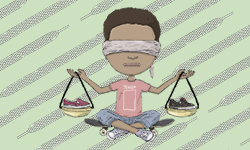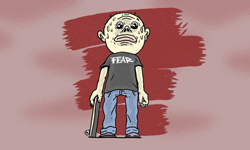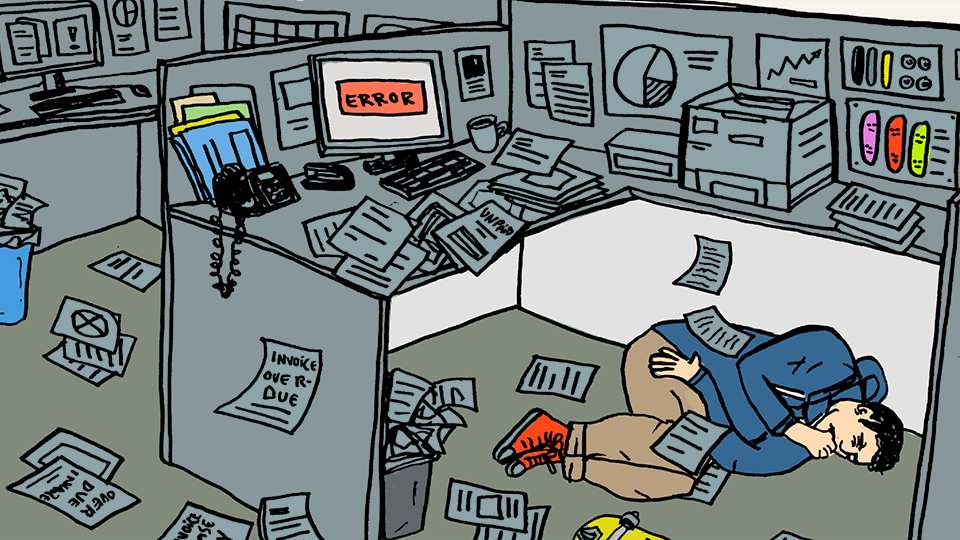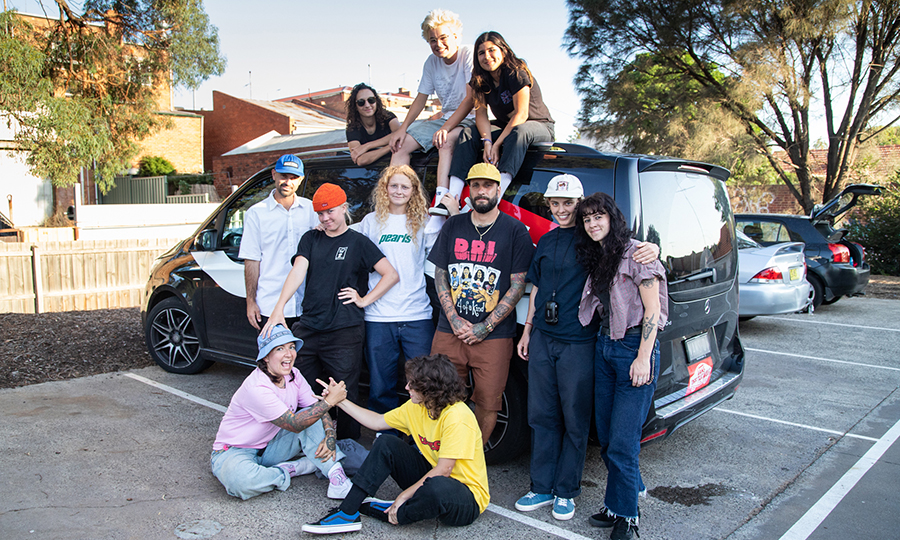In the past decade there has been a huge increase in the level of corporate involvement in skateboarding, and we may be returning to a form of skateboarding that Steve Rocco, Mike Vallely, Mark Gonzales, and others desperately tried to escape in the early 1990’s.
New members within the skate community, like Eric Wiseman, Phil Knight, Herbert Hainer, the Maloofs, Gary Ream, William Sweedler, Neil Cole, and Andrew Kline, are all challenging what it means to be a skateboarder and how we skateboard. These men (that have probably never stepped foot on a skateboard) run or are the money behind VF Corp [Vans], Nike, Adidas, Maloof Money Cup, Woodward, Sequential Brands [DVS], Iconix [Zoo York], and Park Lane Sports Investment Banking [Street League]. Through their economic capital, and power outside of skateboarding they have been able to force their way into powerful positions within skateboarding and are able to directly profit off of our activity. Should we care if non-skaters are allowed to hold powerful positions in our culture? Should we care if skaters associate with these people and buy their products? Will it change how we skateboard, how we view ourselves, and how we view the world?
Of course! As skateboarders we all share social space and none of us exist in a vacuum (in some way all of our actions affect the skate culture as a whole and every skater within it). Within this social space our collective actions have produced and emphasized how important creativity, autonomy, cooperation, and fun are within skateboarding. These values make up the dominant ideology within skateboarding, which shapes our identities, how we view the world and how we act within it. But as more and more corporations enter the activity, they are challenging and attempting to shift the dominant ideology and performance of skateboarding into something that allows them to rationally fulfill their sole purpose: the pursuit of profit. If they are successful it may not change the ideology or performance of skaters like myself that have been involved in the activity for many years, but it will change the ideology, the space, and economics of skateboarding for younger skaters, and alienate older skaters from a social world they helped create and maintain until it was invaded by and sold to outsiders.
Many of these outsiders are attempting to run skateboarding with the same principles that drive many modern corporations, which are completely incompatible with street-skating as we know it. As George Ritzer points out in The McDonaldization of Society, businesses attempt to operate in an extremely efficient fashion. They focus on making everything quantifiable (skatemetrics) rather than focusing on creating subjective quality (“best” video part), they want everything to be predictable (i.e. standardized, the same experience every time), and they want all aspects of a business or activity to be easily controlled, basically the antithesis of what skateboarding is today. As the corporation’s values become more and more apart of skateboarding and influence the ideologies of individual skaters, the greater the potential that our activity will fundamentally change. Skateboarding won’t be like the activity we all know today, instead it will have an ideology and a performance similar to that of football, or, as Rob Dyrdek is praying for, the UFC.
If corporations continue to gain influence within our culture the dominant form of skateboarding may move from the streets, where it is difficult to control or directly profit off of, into the contained space of the park. Additionally the skate video may also fall to the wayside. Why spend the money to send a skate team to Barcelona for three weeks to film ten tricks, when you can fly one skater to Gilbert, AZ for a couple of days and have your logo seen throughout the world on ESPN?
Instead of inefficiently, creatively, and collaboratively creating skate videos, skaters will efficiently and competitively enter into the highly predictable, standardized, quantifiable, and controllable world of mega-contests. In this social-world, there is no time for a skater to push himself spending hours trying to land a trick, because it is inefficient. There is little room for creativity (i.e. no backside 50-50 finger-flip) because, “it isn’t good strategy.” And there is no reason to seek out new skate spots as it more efficient for all skate contests to take place in the same stylized spaces. Whether you are in Gilbert or Toronto you can watch Chaz Ortiz jump down the exact same 10 stair. If corporate skating begins to dominate there will be little room left for the skating that Louie Barletta, Chris “Mango” Milic, or Jeff Stevens do, there will only be room for the (amazing, but) standardized and predictable skating of Greg Lutzka, Ryan Sheckler, and Nyjah Houston.
”Skateboarding is separating into two poles: one where a few businesses and a very small group of skaters are making lots of money, while everyone else is fucked.”
A strong corporate presence within our culture will change the economics of skateboarding. As we have seen in the past seven years, Nike and Adidas’s presence has escalated the number of skater owned skate shoe companies that have gone out of business, which limits the ability of skaters to influence skateboarding. Skater owned companies are in dire economic situations, not because of natural fluctuations within the skateboard market, but because of the imbalance of economic power within skateboarding that is evident in a post-Consolidunk era.
The entrance of Nike, Adidas, and other mega-corporations, has created a situation similar to what many popular but small coffee shops faced when dealing with Starbucks. Starbucks would open across the street from a local coffee shop, and even if the local coffee shop was doing well prior to Starbucks entrance, the small shops couldn’t afford to operate in such close proximity to a Starbucks “Café,” which could afford to run at a loss, dump huge amounts of money into advertisements and promotions, and do huge amounts of market research on potential customers because of its deep pockets. Eventually the small café would go under, which allowed Starbucks to dominate the local market, not because their product was superior, but because of their economic might (see Naomi Klien’s book No Logo and Ocean Howell’s “Extreme Market Research”).
Corporations are also changing the idea of what skaters think they deserve to be paid, how much profit companies… err shareholders should expect to profit off them, and how little corporations need to invest into the culture as a whole. It has become “common sense” that Chris Cole and other mega-stars deserve to make an average of $40,000 per month, while many pros pull a salary much closer to $2000 a month, or are being dropped in order to pay for the mega-stars contracts. It has become reasonable that the publicly traded corporation Zumiez does hundreds of millions in sales in each year, but doesn’t sponsor one skater.
And we are all amazed that the Maloofs are willing to put up a $500,000 cash prize, when in reality $500,000 is nothing when we consider the fact that the Maloof family is worth approximately 1 billion! 500k is 1/2000 of their net worth. This is the same as if the average American family (net worth 77K) was to “give away” $15 (I put give away in quotes since the Maloofs profit off the Money Cup and do not lose money). It seems that skateboarding is separating into two poles: one where a few businesses and a very small group of skaters are making lots of money, while everyone else is fucked. Sadly, our new ideology allows us to see this as normal, when in reality this is a very unusual state of affairs for skateboarding.
Finally, the large corporations buying, selling, and trading skate companies drastically affects the structure of the skateboard world. We recently saw this when Mark Ecko sold Zoo York to Iconix, who then decided it would improve their bottom line if they abandoned Zoo York’s “skate program” and dumped some of their riders.
Another example of the consequences of skateboard companies being bought and sold as commodities instead of being treated as pillars within the skateboard community is VF Corp’s acquisition of Timberland. VF Corp recently purchased Timberland, which had owned Ipath. A few months before VF Corp acquired Timberland Ipath was sold to Klone Lab, which lead to the restructuring of Ipath and the loss of a good portion of the team (as we see with Birdhouse’s new pro Ben Raybourn, the up-coming ams Ryan Reyes, Ryan Lay, and many others all leaving the company).
Corporations only value skate-companies and skateboarders in relation to how much capital they can generate for a group of shareholders, instead of valuing them as important parts of our culture. In the world of corporate skateboarding, skate-companies and skaters are simply commodities that are meant to be bought, profited from, and then thrown away.
If the corporations continue to increase their hold of skateboarding the ramifications for skateboarding in terms of culture, space, and economics will be huge. Instead of waiting to see Mango’s next creative part, the hijinks of the Baker Boys or the adventure of Wallner’s next skate-documentary we will be stuck watching Alex Klein attempt to sell competitive skateboarding to outsiders and Sheckler win at skateboarding by being the “best”. Rather than being anomalies these skaters will become the norm if we return to the world of corporate skateboarding, and we will end up in a worse spot than we were in the 1980s when Vallely, Rocco, Gonzales, and others all first rebelled against corporate control.
Related Posts
Comments
Popular
-
 WHAT WOULD MAKE SKATERS DITCH THE BIG SHOE BRANDS?
WHAT WOULD MAKE SKATERS DITCH THE BIG SHOE BRANDS?
We asked younger skaters how small shoe brands could win back their business from the big budget behemoths.
-
 MY EXPERIENCES IN SKATEBOARDING
MY EXPERIENCES IN SKATEBOARDING
"I've been terrified of garnering the reputation of 'ramp-tramp' or 'pro-ho' just from spending time with skaters."
-
 MEET UNITY, SKATEBOARDING’S MOST PROGRESSIVE CREW
MEET UNITY, SKATEBOARDING’S MOST PROGRESSIVE CREW
"Never has my gay life intersected with my skateboarding life. If anything, maybe I’d worked to pull them apart."
-
 WHAT HAPPENED TO GERSHON MOSLEY?
WHAT HAPPENED TO GERSHON MOSLEY?
From punching Andrew Reynolds, to not getting "pimped" by the industry, Gershon covers everything you wanted to know.
-
 HOW CAN WE HELP KEEP SKATE SHOPS ALIVE?
HOW CAN WE HELP KEEP SKATE SHOPS ALIVE?
For years brands and skaters have blindly cried "support your local," but we asked shop owners about other ways we can all provide actual help.













December 4, 2012 2:35 pm
Its funny when Americans blame capitalism and the monopolies I thought they are afraid of that.
Yeah skateboarding was sociodemocratic and now its going neoliberal. Neolibarism sucks.
Read Karl Marx’s the capital and you will se a veru good analysis of what is happening to skateboarding and the whole world.
December 4, 2012 2:51 pm
Another Chicken-Little, sky’s going to fall in piece from a guy who stares with teary-eyed fondness at an age when only a minority of people skated and it was an elite, cliquey activity. The whole world is changing – every aspect – business is getting bigger, the internet has changed the game in retail, and ESPN, and a whole bunch of franchise computer games have helped to popularise skating like never before. Yes, companies may change the business model for pro skaters, but how does affect the 17.98 million skaters worldwide who are not pros? Nobody is physically stopping them skating their usual spots (any more than before!) and now companies with a bit of business nous and huge research budgets are slugging it out with each other for our money, lifting the quality of footwear like never before. Meanwhile, the market is awash with kids setting up their own deck brands, buying blank decks and screen printing their own graphics. Meanwhile, youtube and cheap cameras means that anyone can be a film-maker. The spirit of innovation hasn’t died – it’s simply changed hands.
Yes, it’s not what you may be used to, but at a grass roots level, skating is whatever YOU want it to be. All of this extra money might actually help the sport to leave its roller skate wheel and plank origins once and for all. Although looking at the popularity of penny decks, I wouldn’t count on it!
December 4, 2012 6:07 pm
Sigh, though I understand where the author is coming from, he’s using basic ideas that the average 14 year old would come up with. Zero depth, just biased generalized ideas.
The argument of comparing the Maloof prize pool in ratio with average family income is hilarious, you must not know the value of a dollar. That argument is also contradicting its self, “Corporate power in the skateboarding community is bad, why can’t they give more than $500,000 at Maloof Cup”, is essentially what you just said.
Though I agree with your ideas, your tool of persuasion is “guru-centric” at best. Do some more research and take a business class. Yes they are making money off skaters (as any other market ALSO makes money off their demographic, implying it only happens in the skateboard community) but it’s only your decision if you let them. A million dollar corporation is a million dollar corporation, if there’s a ton of money there’s going to be people wearing suits. I mean, no company should get that big right? Then support local. enough said.
December 4, 2012 7:18 pm
while its true that hyper-predictable park skating lends itself much more to commodification, control, exploitation, etc., there’s no reason that “creative skating” can’t also become a commodity, to be bought and sold in the market place. all that needs to happen is for the rich white guys to pay a real skater who needs money to do the “cool searching” for them. think about the weird vhs wave skating that started happening years ago, and how on big name web parts now, static and cheesy rip-off vhs effects are being added at the beginning or in bits throughout the parts. think about how wallrides and no complys used to be what the cool kids did who were ahead of the curve did, and now everyone’s doing them, even big names.
capitalism and profit motivation has always been a part of skateboarding, and everything about money influencing skating that this article is fearing has basically already come true, and has been happening for a while now. we live in a consumer capitalist political economy, thats not starting just now, nor is it ending soon.
and yo, video parts aren’t going by the wayside, come on now. its easier than ever to get a camera and film your friends. sure, we will see more mega-contests, gym-style training facilities, work out regiments, whatever, but the existence of these things won’t make it so that its impossible to go out and just skate. Is basketball ruined for everyone now that its big money? What about making music? Fine art? Sure it might get harder, and the life of a pro skater might get cornier, but who ever wanted to be pro? Wasn’t the point to skate, not to make a living skating?